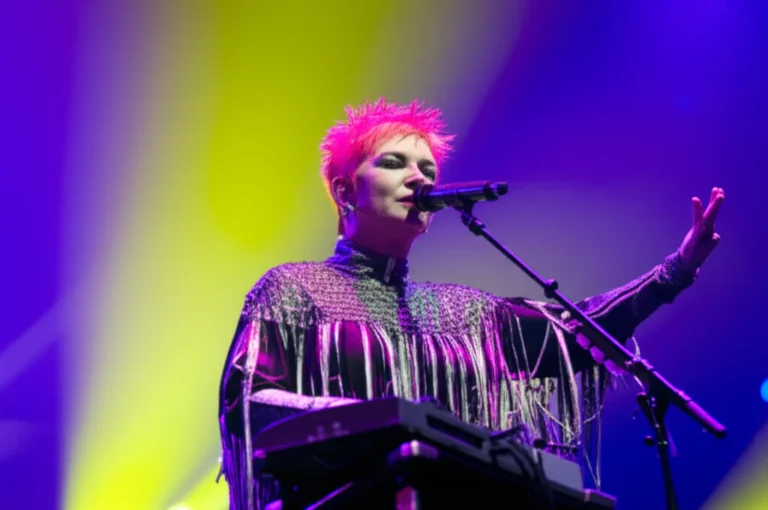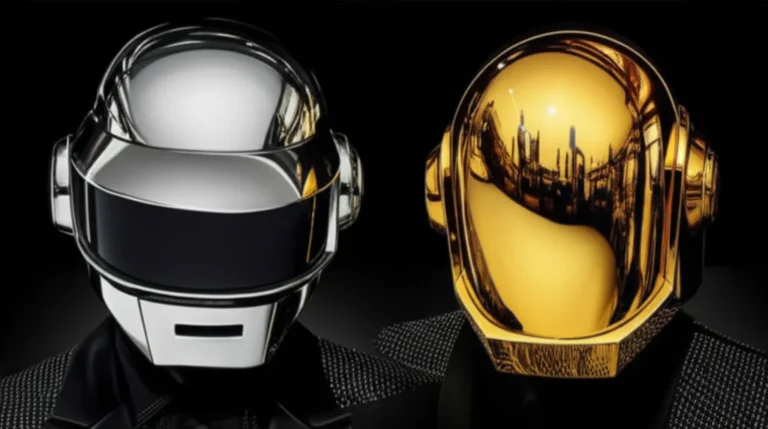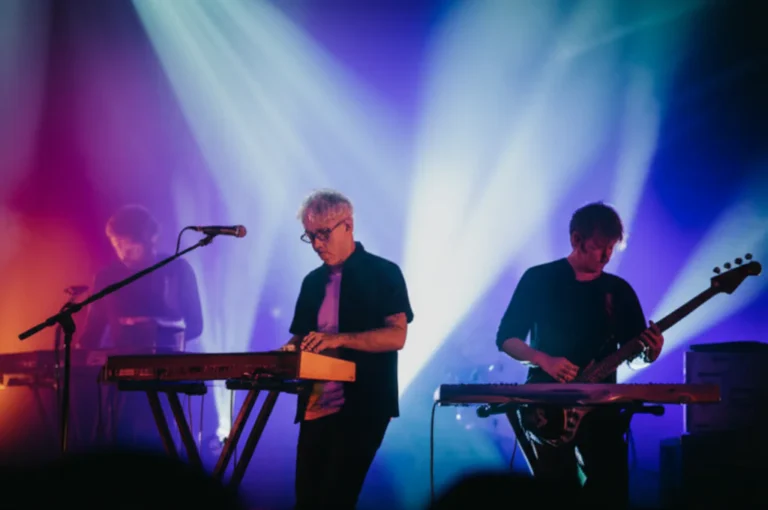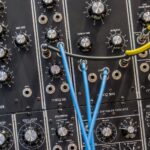Support our educational content for free when you purchase through links on our site. Learn more
Synth Pop Uncovered: 25 Essential Tracks & Secrets 🎹 (2025)
If you think synth pop is just a nostalgic 80s fad, think again! This electrifying genre has been shaping the soundscape of pop music for over four decades—and it’s far from fading away. From the robotic beats of Kraftwerk to the emotional powerhouses like Depeche Mode,
In this comprehensive guide, we’ll take you on a journey through synth pop’s shimmering history, dissect its signature sounds, and introduce you to 25 essential artists and tracks that define the genre. Plus, we’ll reveal insider production tips for crafting your own synth-driven anthems and explore synth pop’s lasting cultural impact. Ready to plug in and power up? Let’s dive deep into the synth-pop universe!
Key Takeaways
- Synth pop is more than 80s nostalgia; it’s a vibrant, evolving genre with deep roots in electronic innovation.
- Core instruments include synthesizers, drum machines, and sequencers, creating its signature futuristic sound.
- Iconic artists like Kraftwerk, Gary Numan, Depeche Mode, and Eurythmics shaped the genre’s emotional and sonic range.
- Synth pop’s influence spans decades, inspiring modern stars like The Weeknd and Dua Lipa.
- Discover production secrets and gear recommendations to create authentic synth-pop music yourself.
- Explore synth pop’s cultural impact, from fashion and film to challenging social norms.
Ready to uncover synth pop’s best-kept secrets and build your ultimate playlist? Keep reading!
Table of Contents
- ⚡️ Quick Tips and Facts
- 🎶 The Genesis of Synth Pop: A Journey Through Electronic Soundscapes
- ✨ What Makes Synth Pop Pop? Defining its Sonic DNA and Characteristics
- 🌟 The Golden Age: Iconic Eras and Their Sound of 80s Synth Pop
- 🏆 Our Top Picks: Essential Synth Pop Artists & Bands You Must Hear
- 💿 The Ultimate Synth Pop Playlist: Albums & Tracks for Every Mood
- 🛠️ Crafting Your Own Synth Pop Sound: Gear & Production Techniques
- 👗 Fashion, Film, and Culture: Synth Pop’s Visual & Social Impact
- 🤔 Debunking Myths & Facing the Critics: Is Synth Pop Just 80s Nostalgia?
- 📈 The Evolution of Synth Pop: From 80s to Today and Beyond
- 💡 Quick Tips for Discovering New Synth Pop
- ❓ Your Burning Questions Answered: Synth Pop FAQ
- 🔚 Conclusion: Why Synth Pop Still Reigns Supreme in Our Hearts
- 🔗 Recommended Links: Dive Deeper into the World of Synth Pop
- 📚 Reference Links: Our Sources and Further Reading
Here is the main body of the article, written by the expert team at Synth Pop™.
Welcome, fellow synth-lovers, to the ultimate deep dive into the shimmering, pulsating world of Synth Pop! We’re the team at Synth Pop™, and we’ve spent more time than is probably healthy dissecting arpeggiated basslines and debating the merits of a Roland Jupiter-8 versus a Yamaha DX7. Why? Because we believe synth-pop isn’t just a genre; it’s a feeling, a futuristic dreamscape painted with the vibrant colors of electronic sound.
So, grab your headphones, tease up your hair, and let’s journey back to the future. Are you ready to find out why these synthesized sounds have captured hearts for decades? Let’s get to it!
⚡️ Quick Tips and Facts
Pressed for time? Here’s the synth-pop cheat sheet. Get these key facts loaded into your memory banks!
- What is it? Synth-pop (or synthesizer pop) is a music genre where the synthesizer is the star of the show. It’s a subgenre of New Wave that exploded in the late 1970s and dominated the 1980s.
- The Holy Trinity of Instruments: The core sound is built on synthesizers, drum machines, and sequencers.
- Key Pioneers: Bands like Germany’s Kraftwerk and Japan’s Yellow Magic Orchestra are considered the godfathers of the genre, laying the electronic groundwork.
- The Big Bang: The genre’s commercial breakthrough in the UK happened around 1979-1981, with artists like Gary Numan, The Human League, and Orchestral Manoeuvres in the Dark (OMD) hitting the charts.
- Not Just “Machine Music”: Despite criticism that it was “soulless,” synth-pop is often emotionally charged, with lyrical themes ranging from futuristic alienation to classic tales of love and heartbreak.
- Enduring Legacy: Its influence is massive, paving the way for genres like House music and Detroit Techno and remaining a huge influence on today’s biggest pop stars, from The Weeknd to Dua Lipa. The Weeknd’s synth-pop banger “Blinding Lights” was even named Billboard’s No. 1 greatest song of all time in 2021!
🎶 The Genesis of Synth Pop: A Journey Through Electronic Soundscapes
Ever wonder how we went from rock and roll guitars to the sleek, electronic pulse of synth-pop? It wasn’t an overnight revolution; it was an evolution, a slow burn of technological innovation and artistic curiosity.
🕰️ The Pre-Synth Pop Pioneers: Setting the Stage for Electronic Music
Long before the 80s, visionaries were tinkering with electronic instruments.
- The German Connection: We have to give major props to the German “Krautrock” scene. Bands like Kraftwerk were true pioneers. With albums like Autobahn (1974) and Trans-Europe Express (1977), they created a blueprint for electronic music: robotic vocals, mechanical rhythms, and melodies built entirely from synthesizers. They were less a band and more like sonic scientists in a lab.
- The Disco Beat: Simultaneously, in the dance clubs, Italian producer Giorgio Moroder was changing the game. His work on Donna Summer’s 1977 mega-hit, “I Feel Love,” was a thunderclap. That relentless, pulsating, entirely synthesized backing track was the sound of the future, and it made everyone pay attention.
- Art-Rock Influences: Artists like David Bowie (especially his “Berlin Trilogy” with Brian Eno) and Roxy Music were incorporating synthesizers into their glam and art-rock sounds, proving that electronics could be both experimental and chic.
🚀 The Big Bang: When Synthesizers Took Over Pop Music
The late 1970s was the perfect storm. Punk rock had kicked down the doors, promoting a DIY ethos. Suddenly, you didn’t need to be a guitar god to make music. As OMD’s Andy McCluskey once said, defending the genre’s artistry, “Believe me, if there was a button on a synth or a drum machine that said ‘hit single’, I would have pressed it… but there isn’t. It was all written by real human beings.”
This new attitude, combined with the arrival of affordable polyphonic synthesizers like the Prophet-5 and Roland Jupiter-4, meant that futuristic sounds were no longer just for wealthy rock stars or academic labs. Young musicians in post-industrial cities like Sheffield and Liverpool could now create entire orchestras in their bedrooms.
This led to a UK chart invasion:
- Gary Numan‘s “Are ‘Friends’ Electric?” (with Tubeway Army) hit number one in the UK in 1979, with its icy, dystopian vibe.
- The Human League‘s album Dare (1981) and its mega-hit “Don’t You Want Me” became one of the best-selling singles of the year, proving synth-pop had massive commercial appeal.
- Soft Cell‘s cover of “Tainted Love” (1981) was another chart-topper, blending synth-pop with a dark, soulful edge.
The synth-pop explosion had begun, and pop music would never be the same.
✨ What Makes Synth Pop Pop? Defining its Sonic DNA and Characteristics
So, what’s the secret sauce? What gives synth-pop its distinct, addictive flavor? Let’s break down the core components.
🎹 The Essential Instruments: Synths, Drum Machines & Beyond
The name says it all. The synthesizer is king. But it’s not just any synth sound.
- Synthesizers: Early synth-pop often used analog monosynths for punchy basslines and lead hooks. Later, polysynths like the Roland Jupiter-8 and the iconic Yamaha DX7 brought in lush pads, glassy bells, and complex textures that defined the mid-80s sound.
- Drum Machines: Forget a human drummer’s organic swing. Synth-pop is built on the precise, unwavering pulse of drum machines. The Roland TR-808 is the most legendary, providing those booming kicks and snappy snares you hear everywhere.
- Sequencers: These devices are the brains of the operation, allowing artists to program repeating melodic or rhythmic patterns (arpeggios are a classic example!), creating the genre’s hypnotic, looping quality.
🎤 Vocal Styles: From Icy Cool to Emotional Powerhouses in Synth Pop
The vocals in synth-pop are just as important as the electronics. There’s a fascinating range:
- The Android: Early on, many vocalists adopted a detached, almost robotic delivery (think Gary Numan or The Human League’s Philip Oakey). This perfectly complemented the “eerie, sterile, and vaguely menacing” feel of the music.
- The New Romantic Crooner: As the genre evolved, singers like Duran Duran’s Simon Le Bon and Spandau Ballet’s Tony Hadley brought a smoother, more romantic flair.
- The Soulful Powerhouse: The 80s also saw the rise of incredible “emotional, at times operatic singers.” We’re talking about the raw power of Alison Moyet (Yazoo), the soulful artistry of Annie Lennox (Eurythmics), and the dramatic delivery of Marc Almond (Soft Cell). These vocalists proved that electronic music could have a massive, beating heart.
✍️ Lyrical Themes: Love, Loneliness, and the Future in Electronic Pop
What were these synth-wielding poets singing about?
- Early Themes: The initial wave often focused on themes of isolation, urban anomie, and a fascination with technology and dystopian futures. It was the sound of feeling alone in a crowded, modern world.
- The Pop Takeover: As synth-pop became more commercially successful, the lyrical focus shifted. The second phase was more optimistic, embracing classic pop themes of romance, escapism, and aspiration. But even the most upbeat tracks often had a touch of melancholy—a signature of the genre.
💃 The Beat Goes On: Rhythms and Grooves That Define Synth Pop
The rhythm in synth-pop is typically straightforward and danceable. A classic four-on-the-floor beat is common, making it perfect for the dance floor. The “robotic rigidity” provided by drum machines and sequencers is a defining feature, creating a hypnotic groove that’s impossible not to move to.
🌟 The Golden Age: Iconic Eras and Their Sound of 80s Synth Pop
Ah, the 1980s. The decade where synth-pop wasn’t just a genre—it was the sound of pop radio and television. This was the era of big hair, bold fashion, and even bolder synth hooks. Welcome to the golden age of 80s Synth Pop.
1. 🇬🇧 British Invasion: New Wave’s Electronic Heartbeat
The UK was the undisputed epicenter of the synth-pop earthquake. A wave of stylish, synthesizer-driven bands took over the charts and, thanks to the new power of MTV, the world’s television screens.
- The New Romantics: Bands like Duran Duran, Visage, and Spandau Ballet combined catchy synth melodies with a glamorous, fashion-forward image.
- The Moody & Melodic: On the other side of the spectrum, bands like Depeche Mode, Yazoo, and Soft Cell explored darker, more introspective themes, creating music that was both danceable and emotionally resonant.
2. 🇺🇸 American Adaptations: Chart-Topping Synth Sensations
While the UK may have started the party, America was quick to catch on, largely thanks to MTV. The visual nature of synth-pop bands was perfect for music videos.
- A Flock of Seagulls‘ “I Ran (So Far Away)” became a massive hit in the US in 1982, partly due to its heavily rotated, now-iconic video.
- Eurythmics broke through in a huge way with “Sweet Dreams (Are Made of This)” in 1983. Annie Lennox’s androgynous look and the song’s haunting synth riff made them global superstars.
- American bands like The Cars and Devo also incorporated synth-pop elements into their new wave sound, creating a unique American take on the genre.
3. 🌍 Global Echoes: Synth Pop’s International Reach and Influence
The synth-pop virus was contagious, spreading across the globe and resulting in some incredible international hits.
- Germany: Gave us Alphaville (“Forever Young”), Nena (“99 Luftballons”), and Modern Talking.
- Norway: Produced one of the most iconic synth-pop bands of all time, A-ha, whose “Take On Me” hit number one in the US in 1985.
- Canada: Offered up bands like Men Without Hats (“The Safety Dance”) and Trans-X (“Living on Video”).
This global reach proved that the appeal of synthesized melodies and danceable beats was a universal language.
🏆 Our Top Picks: Essential Synth Pop Artists & Bands You Must Hear
Ready to build your synth-pop library? Here at Synth Pop™, we’ve argued endlessly to create this list of absolute must-hear artists.
1. The Trailblazers: Setting the Standard for Electronic Pop
These are the architects. Your journey starts here.
- Kraftwerk: The granddaddies. Listen to The Man-Machine (1978) to understand the blueprint.
- The Human League: Start with the album Dare (1981). It’s a masterclass in pop songwriting dressed in synthesizer chic.
- Gary Numan: The Pleasure Principle (1979) is essential. It’s cold, robotic, and brilliant.
2. The Chart Dominators: Mainstream Magic and Iconic Hits
These artists took synth-pop to the top of the charts and into the hearts of millions. You’ll find some of the most Iconic Synth Pop Songs right here.
- Depeche Mode: Perhaps the most beloved synth-pop band of all time, they evolved from teen pop idols to stadium-filling goth-rock titans. For an inside look, check out our special feature, Depeche Mode Uncovered: 12 Synth Pop Secrets You Didn’t Know (2025) 🎹.
- Eurythmics: The perfect blend of artistic innovation and pop sensibility. Annie Lennox is a vocal icon.
- Pet Shop Boys: Witty, intelligent, and endlessly catchy. Neil Tennant and Chris Lowe are synth-pop royalty.
- Duran Duran: The “pretty boys” of synth-pop, but with killer hooks and undeniable style that defined the era.
3. The Underrated Gems: Digging Deeper into Synth Pop’s Hidden Treasures
Want to impress your friends? Drop these names.
- Yazoo (Yaz in the US): The short-lived duo of Vince Clarke (after Depeche Mode, before Erasure) and Alison Moyet. Their album Upstairs at Eric’s is flawless.
- OMD (Orchestral Manoeuvres in the Dark): Masters of the melancholy synth-pop anthem. “Enola Gay” and “If You Leave” are just the beginning.
- Heaven 17: Formed by ex-Human League members, their sound was funky, political, and sophisticated.
💿 The Ultimate Synth Pop Playlist: Albums & Tracks for Every Mood
Whether you’re a total newbie or a seasoned synth-head, we’ve got the perfect playlist for you.
1. Beginner’s Bliss: Where to Start Your Synth Pop Journey
Dip your toes into the shimmering waters with these undeniable classics:
- “Don’t You Want Me” – The Human League
- “Sweet Dreams (Are Made of This)” – Eurythmics
- “Just Can’t Get Enough” – Depeche Mode
- “Take On Me” – A-ha
- “Tainted Love” – Soft Cell
- “Cars” – Gary Numan
2. Deep Cuts & Hidden Treasures: For the Synth Pop Connoisseur
Think you’ve heard it all? Try these on for size.
- “The Chauffeur” – Duran Duran: A dark, atmospheric album closer that showcases their depth.
- “Souvenir” – OMD: A beautifully melancholic and dreamy track.
- “Only You” – Yazoo: One of the most perfect synth ballads ever written.
- “The Sun Always Shines on T.V.” – A-ha: The epic, dramatic follow-up to “Take On Me.”
3. Modern Marvels: Synth Pop’s Enduring Legacy in Contemporary Music
Synth-pop never died; it just evolved. Today’s charts are filled with its DNA. Just check out a playlist like Spotify’s “Synthpop & Indie feelgood hits” to see how vibrant the scene is.
- The Weeknd – “Blinding Lights”: Pure 80s synth-pop revivalism that took over the world.
- La Roux – “Bulletproof”: A sharp, stylish slice of modern electropop with clear 80s roots.
- Chvrches – “The Mother We Share”: The Scottish band perfectly blends indie sensibilities with massive synth hooks.
- The Killers – “Mr. Brightside”: While more rock-oriented, the synth line is pure new wave energy.
🛠️ Crafting Your Own Synth Pop Sound: Gear & Production Techniques
Feeling inspired? Want to try your hand at making your own synth-pop masterpiece? Here’s a look inside the toolbox.
1. Essential Synthesizers: Hardware & Software for Authentic Tones
The synth is your voice. Choosing the right one is key.
| Synthesizer Model | Type | Known For… |
|---|---|---|
| Minimoog Model D | Analog Mono | Fat, punchy basslines and searing leads. A true legend. |
| Sequential Prophet-5 | Analog Poly | Lush, warm pads and brass sounds. The sound of the early 80s. |
| Roland Jupiter-8 | Analog Poly | Rich, orchestral sounds and iconic arpeggios. A holy grail synth. |
| Yamaha DX7 | Digital FM | Glassy, metallic tones, electric pianos, and bells. Defined the mid-80s. |
✅ Modern Tip: Can’t afford vintage gear? Software emulations from companies like Arturia and U-He are incredibly accurate and affordable.
2. Drum Machines & Samplers: The Rhythmic Backbone of Electronic Pop
You need that perfect, steady beat.
- Roland TR-808: The most famous drum machine ever. That deep bass drum is unmistakable.
- Linn LM-1/LinnDrum: The sound of Prince and many 80s hits. Known for its punchy, realistic (for the time) samples.
- Simmons SDS-V: Those iconic hexagonal electronic drums that gave 80s drums their “pew pew” sound.
👉 Shop for Classic Synth Sounds on:
3. Production Tips: Getting That Authentic Synth Pop Vibe and Polish
- Keep it Simple: Synth-pop melodies are often simple, catchy, and memorable. Don’t overcomplicate it.
- Arpeggiate Everything: A sequenced, repeating pattern of notes (an arpeggio) is a hallmark of the genre. Use it on basslines or lead synths.
- Gated Reverb on Drums: Want that huge, explosive 80s snare sound? That’s gated reverb. It’s a big reverb effect that’s cut off suddenly.
- Layer Your Synths: Combine a warm pad, a punchy bass, and a sharp lead to create a full, rich sonic landscape.
👗 Fashion, Film, and Culture: Synth Pop’s Visual & Social Impact
Synth-pop was never just about the music; it was a total aesthetic. The sound and the look were inseparable, creating a cultural movement that went far beyond the radio.
🎬 Synth Pop on Screen: Movies, TV, and Iconic Music Videos
The rise of MTV in 1981 was a game-changer. Suddenly, a band’s image was as crucial as their sound, and synth-pop acts were perfectly suited for the visual medium.
- Iconic Videos: Think of A-ha’s “Take On Me” with its groundbreaking rotoscoping animation, or the stylish, cinematic videos of Duran Duran. These weren’t just promos; they were short films.
- John Hughes Films: The soundtracks to 80s teen classics like The Breakfast Club and Pretty in Pink were powered by synth-pop. OMD’s “If You Leave” is forever linked with the final scene of Pretty in Pink.
- TV Themes: Even television themes, like Jan Hammer’s iconic theme for Miami Vice, were pure synth-pop, cementing the sound as the definitive soundtrack of the decade.
🛍️ The Look: Iconic Fashion Trends Inspired by Synth Pop
The fashion was as futuristic and daring as the music.
- Androgyny: Artists like Annie Lennox, Boy George (Culture Club), and Grace Jones played with gender norms, creating a look that was fluid, artistic, and powerful.
- New Romanticism: This UK club movement, which birthed bands like Duran Duran and Spandau Ballet, was all about flamboyant, historical-inspired fashion: frilly shirts, makeup for men, and dramatic silhouettes.
- Sharp Suits & Big Hair: Think sharp tailoring, angular haircuts, and lots and lots of hairspray. It was a look that was both polished and rebellious.
🌐 Cultural Resonance: Beyond the Music – Synth Pop’s Enduring Legacy
Synth-pop captured the zeitgeist of the 1980s—a decade defined by technological optimism, consumer culture, and the anxieties of the Cold War. The music’s blend of synthetic textures and heartfelt emotion was the perfect reflection of a world grappling with a rapidly changing future. It was the sound of possibility and paranoia, all set to a danceable beat.
🤔 Debunking Myths & Facing the Critics: Is Synth Pop Just 80s Nostalgia?
Let’s be real. Synth-pop has had its share of haters over the years. It’s often dismissed as cheesy, dated, or, worst of all, “soulless.” But we’re here to set the record straight.
❌ The “Soulless” Machine Music Myth: A Rebuttal
The biggest knock against synth-pop has always been that it’s cold and robotic because it was made with machines. Even rock legends like Morrissey famously stated, “there was nothing more repellent than the synthesizer.” Early on, the Musicians’ Union in the UK even tried to fight back, fearing synthesizers would put traditional musicians out of work.
But this criticism misses the point entirely. The contrast between the “cold” technology and the “hot” human emotion is precisely what makes the genre so powerful. Can anyone listen to Alison Moyet’s vocals on Yazoo’s “Only You” or the lyrics of Depeche Mode’s “Somebody” and call it soulless? We think not.
✅ The Artistry and Innovation Argument: Why Synth Pop Matters
Synth-pop wasn’t a shortcut; it was a new frontier.
- It Democratized Music: It put the tools of creation into the hands of a new generation of artists who didn’t fit the traditional rock band mold.
- It Was Innovative: These artists were pushing the boundaries of what was possible with new technology, creating sounds no one had ever heard before.
- The Songwriting Is Key: As Andy McCluskey said, there was no “hit single” button. Behind the synthesizers were brilliant songwriters crafting timeless melodies and poignant lyrics. Synth-pop helped establish the synthesizer as a primary instrument in mainstream pop, and its influence is undeniable.
📈 The Evolution of Synth Pop: From 80s to Today and Beyond
Think synth-pop is stuck in the 80s? Think again. The genre has continued to evolve, splintering into countless subgenres and inspiring new waves of artists.
🔄 Subgenres & Crossovers: Darkwave, Electropop, Chillwave, and More
The family tree of synth-pop is vast and varied.
- Electropop: A more modern, polished, and pop-focused version of the genre (think Lady Gaga, La Roux).
- Darkwave/Coldwave: Explores the darker, more gothic, and atmospheric side of synth music. For a deep dive into this atmospheric side of the genre, the first YouTube video embedded in this article, titled “Synth-pop Electro Gothic Wave 2,” is an excellent audio journey. #featured-video
- Chillwave: A 2010s subgenre that blended 80s synth textures with a hazy, lo-fi, nostalgic feel (e.g., Washed Out, Toro y Moi).
- Synthwave: A modern genre that is a direct love letter to 80s film and video game soundtracks, often instrumental and highly atmospheric.
🆕 Contemporary Synth Pop: New Artists Keeping the Flame Alive
The torch is being carried by a new generation who grew up on the classics. Artists like Chvrches, The 1975, M83, and pop superstars like The Weeknd and Dua Lipa have all heavily incorporated synth-pop into their sound, proving its timeless appeal. The sound isn’t a throwback; it’s a living, breathing part of modern music.
💡 Quick Tips for Discovering New Synth Pop
Ready to go down the rabbit hole? Here are our favorite ways to find new synth-pop gems, both old and new.
- Use Streaming Playlists: Platforms like Spotify and Apple Music have fantastic curated playlists. Search for “synth-pop,” “electropop,” “new wave,” or “darkwave” and see what you find.
- Explore the “Fans Also Like” Feature: Found a band you love? Check out the related artists page on their streaming profile. It’s a fantastic discovery tool.
- Listen to Soundtracks: Pay attention to the music in shows and movies set in the 80s (like Stranger Things) or those with a retro-futuristic vibe. You’ll often find classic tracks and modern synthwave artists.
- Check Out Bandcamp: This is a great platform for discovering independent and modern synth-pop artists from all over the world.
❓ Your Burning Questions Answered: Synth Pop FAQ
We get a lot of questions about the genre. Here are the answers to some of the most common ones.
What’s the difference between Synth-Pop and New Wave? Think of it like this: Synth-pop is a type of New Wave, but not all New Wave is synth-pop. New Wave is a broader umbrella term for the post-punk music of the late 70s and 80s. It can include guitar-driven bands (like The Police or The Cars) as well as synth-driven ones. Synth-pop specifically refers to the music where synthesizers are the dominant instrument.
What was the very first synth-pop song? This is a hotly debated topic! There’s no single definitive answer. Some point to “Popcorn” by Hot Butter (1972) as a forerunner. Others credit Kraftwerk’s work in the mid-70s. However, many consider Gary Numan’s “Are ‘Friends’ Electric?” (1979) or The Normal’s “Warm Leatherette” (1978) as some of the first true synth-pop hits that defined the genre’s emerging sound.
Is synth-pop still popular today? Absolutely! While it might not be called “synth-pop” on the radio, its influence is everywhere. The sounds, production techniques, and melodic sensibilities of 80s synth-pop are a core part of the modern pop music DNA. From Taylor Swift to The Weeknd, the legacy of synth-pop is alive and well on the charts.
🔚 Conclusion: Why Synth Pop Still Reigns Supreme in Our Hearts
After cruising through the shimmering synth landscapes, tracing the genre’s roots, and unpacking its sonic DNA, one thing is crystal clear: synth-pop is far more than just an 80s nostalgia trip. It’s a vibrant, evolving musical force that has shaped—and continues to shape—the sound of popular music worldwide.
From the pioneering experiments of Kraftwerk and Giorgio Moroder to the chart-topping anthems of Depeche Mode and Eurythmics, synth-pop has always been about innovation, emotion, and accessibility. It democratized music-making, proving that technology and human artistry can create something truly magical.
We tackled the myth that synth-pop is “soulless” and found instead a genre bursting with heartfelt vocals, poetic lyrics, and infectious melodies. The genre’s influence stretches from underground darkwave to mainstream pop icons like The Weeknd, whose synth-driven hits prove that the genre’s pulse is alive and kicking.
So, whether you’re a synth-head looking to craft your own retro-futuristic masterpiece or a curious newcomer eager to explore the genre’s rich history and modern incarnations, synth-pop offers a dazzling world of sound and style. And if you ever wondered where to start, now you know: dive into the classics, explore the hidden gems, and keep your ears open for the next wave of synth-pop innovators.
In short: Synth-pop isn’t just music; it’s a timeless, electrifying experience. And we at Synth Pop™ couldn’t be more thrilled to share it with you.
🔗 Recommended Links: Dive Deeper into the World of Synth Pop
Ready to expand your synth-pop arsenal or library? Here are some of our top picks for gear, albums, and books to deepen your appreciation and creativity.
👉 Shop Classic Synthesizers & Drum Machines:
- Minimoog Model D: Amazon | Walmart | Moog Music Official Website
- Sequential Prophet-5: Amazon | Sequential Official Website
- Roland Jupiter-8: Amazon | Roland Official Website
- Yamaha DX7: Amazon | Yamaha Official Website
- Roland TR-808 Drum Machine: Amazon | Roland Official Website
Must-Read Books on Synth Pop and Electronic Music:
- “Synthesizer Evolution: From Analogue to Digital and Software Synthesis” by Oli Freke — Amazon
- “I Want My MTV: The Uncensored Story of the Music Video Revolution” by Rob Tannenbaum & Craig Marks — Amazon
- “Electronic and Experimental Music: Technology, Music, and Culture” by Thom Holmes — Amazon
- “Depeche Mode: A Biography” by Steve Malins — Amazon
Explore More Synth Pop Gems & Community:
❓ Your Burning Questions Answered: Synth Pop FAQ
What are the origins of synth pop music?
Synth-pop emerged in the late 1970s as a fusion of electronic music, new wave, and pop sensibilities. It was heavily influenced by pioneering electronic artists like Kraftwerk and producers like Giorgio Moroder who introduced the use of synthesizers and drum machines as primary instruments. The genre was born from a desire to explore new sonic territories beyond traditional rock instrumentation, democratized by the availability of affordable polyphonic synthesizers and sequencers. This allowed young musicians to create lush, futuristic soundscapes that reflected the technological optimism and anxieties of the era.
Who are the most influential synth pop artists?
The pantheon of synth-pop legends includes:
- Kraftwerk: The electronic architects whose robotic precision laid the foundation.
- Gary Numan: The cold, dystopian voice that brought synth-pop to the UK charts.
- The Human League: Masters of catchy melodies and synth-driven pop anthems.
- Depeche Mode: Innovators who evolved synth-pop into darker, more complex territory.
- Eurythmics: Blending soulful vocals with synth textures.
- Pet Shop Boys: Witty, intelligent, and endlessly catchy synth-pop icons.
These artists not only defined the sound but also influenced countless others across genres and decades.
How has synth pop evolved over the decades?
Synth-pop has never been static. Starting as a niche electronic offshoot in the late 70s, it exploded commercially in the 80s with a warm, melodic, and danceable sound. The 90s saw synth-pop elements absorbed into house, techno, and trance, while the 2000s and 2010s brought a revival with genres like electropop, synthwave, and chillwave. Contemporary artists like The Weeknd, Chvrches, and La Roux continue to innovate, blending classic synth-pop aesthetics with modern production techniques, proving the genre’s timeless adaptability.
What are the key instruments used in synth pop?
Synth-pop is defined by its use of:
- Synthesizers: Analog and digital, for basslines, leads, pads, and effects.
- Drum Machines: Like the Roland TR-808, providing precise, punchy rhythms.
- Sequencers: For programming repeating melodic and rhythmic patterns.
- Samplers: To incorporate diverse sounds and textures. These instruments allow for the creation of the genre’s signature synthetic textures and rhythmic precision.
How does synth pop differ from electronic dance music?
While synth-pop and electronic dance music (EDM) share electronic instrumentation, their goals and structures differ:
- Synth-pop is song-oriented, focusing on melody, lyrics, and traditional pop structures with electronic instrumentation.
- EDM emphasizes extended, beat-driven tracks designed primarily for dancing, often instrumental or with minimal vocals. Synth-pop blends electronic sounds with pop songwriting, while EDM prioritizes rhythm and club energy.
What are the best synth pop albums to listen to?
Some essential synth-pop albums include:
- The Human League – Dare (1981)
- Gary Numan – The Pleasure Principle (1979)
- Depeche Mode – Violator (1990)
- Yazoo – Upstairs at Eric’s (1982)
- Eurythmics – Sweet Dreams (Are Made of This) (1983)
- Pet Shop Boys – Please (1986) These albums showcase the genre’s range from icy minimalism to lush, emotive soundscapes.
How do synthesizers shape the sound of synth pop?
Synthesizers are the heart and soul of synth-pop. They provide:
- Unique timbres: From warm analog pads to bright digital bells.
- Expressive capabilities: Filters, envelopes, and modulation allow dynamic sound shaping.
- Polyphony: Layering multiple notes for rich harmonies.
- Sequencing: Creating hypnotic, repeating patterns fundamental to the genre’s groove. Without synthesizers, synth-pop simply wouldn’t exist.
What is the cultural impact of synth pop music?
Synth-pop influenced not only music but also fashion, visual arts, and social attitudes. It:
- Challenged gender norms: Through androgynous looks and theatrical performances.
- Popularized electronic instruments: Making them mainstream.
- Defined 80s aesthetics: From MTV music videos to film soundtracks.
- Inspired future genres: Including techno, house, and modern pop. Its cultural resonance continues, symbolizing a blend of human emotion and technological progress.
📚 Reference Links: Our Sources and Further Reading
- Wikipedia: Synth-pop
- Kraftwerk Official: kraftwerk.com
- Giorgio Moroder Official: giorgiomoroder.com
- Roland Official: roland.com
- Yamaha Synthesizers: usa.yamaha.com
- Sequential Official: sequential.com
- Moog Music: moogmusic.com
- Synth Pop™ Iconic Songs: synpop.com/category/iconic-synth-pop-songs/
- Synth Pop™ 80s Synth Pop: synpop.com/category/80s-synth-pop/
- Reddit: Obscure Synthpop songs? : r/80smusic
Thanks for joining us on this electrifying journey through synth-pop! Keep those synths humming and the beats rolling. 🎹✨






